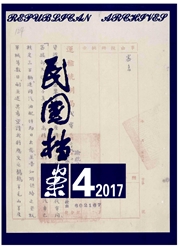

 中文摘要:
中文摘要:
交换使人们的物质生产获得了商品的形式,人们在交换的过程中使人类本质的认识范围扩展到了经济关系。从贵州清水江流域自明清以来木材贸易的族际经济结构中,木材贸易总是与礼仪、习俗等不同的制度性存在紧紧地粘连在一起,并共同形成为特定社会的一种结构。一个交换系统是由法律、法令、传统习惯和各种促进付给的手段、工具所组成,也即是这些因素——文化构成了人们的交换环境。从短期看,这些交换环境影响和决定着交换主体的行为,交换主体仅表现为交换环境的接受者;但从长远看,交换主体与交换环境之间又表现为相互作用相互影响的过程。二者之间表现为一种共生关系,交换环境并不仅仅是影响交换行为的外生性变量。
 英文摘要:
英文摘要:
Exchange leads to the form of commodity for material production. In the process, people' s understanding to each other is extended to their economic relations. In the study, it is discovered that the inter-clans economic structure in timber trade in the Qingshuijiang River Basin in Guizhou since the Ming and Qing dynasties was always tightly stuck with their institutional presence like etiquettes and customs, forming a particular social structure. An exchange system is made on the basis of culture-laws, regulations, traditions and various means to promote payment-which provide an environment for exchange. In the short term, such an exchange environment affects and determines the behavior of the exchangers, who appear to be only the recipient of the environment. In the long run, the subject and the environment of exchange are interactively involved. There is a symbiotic relationship between them and exchange environment is not just exogenous variables affecting the exchange behavior.
 同期刊论文项目
同期刊论文项目
 同项目期刊论文
同项目期刊论文
 期刊信息
期刊信息
